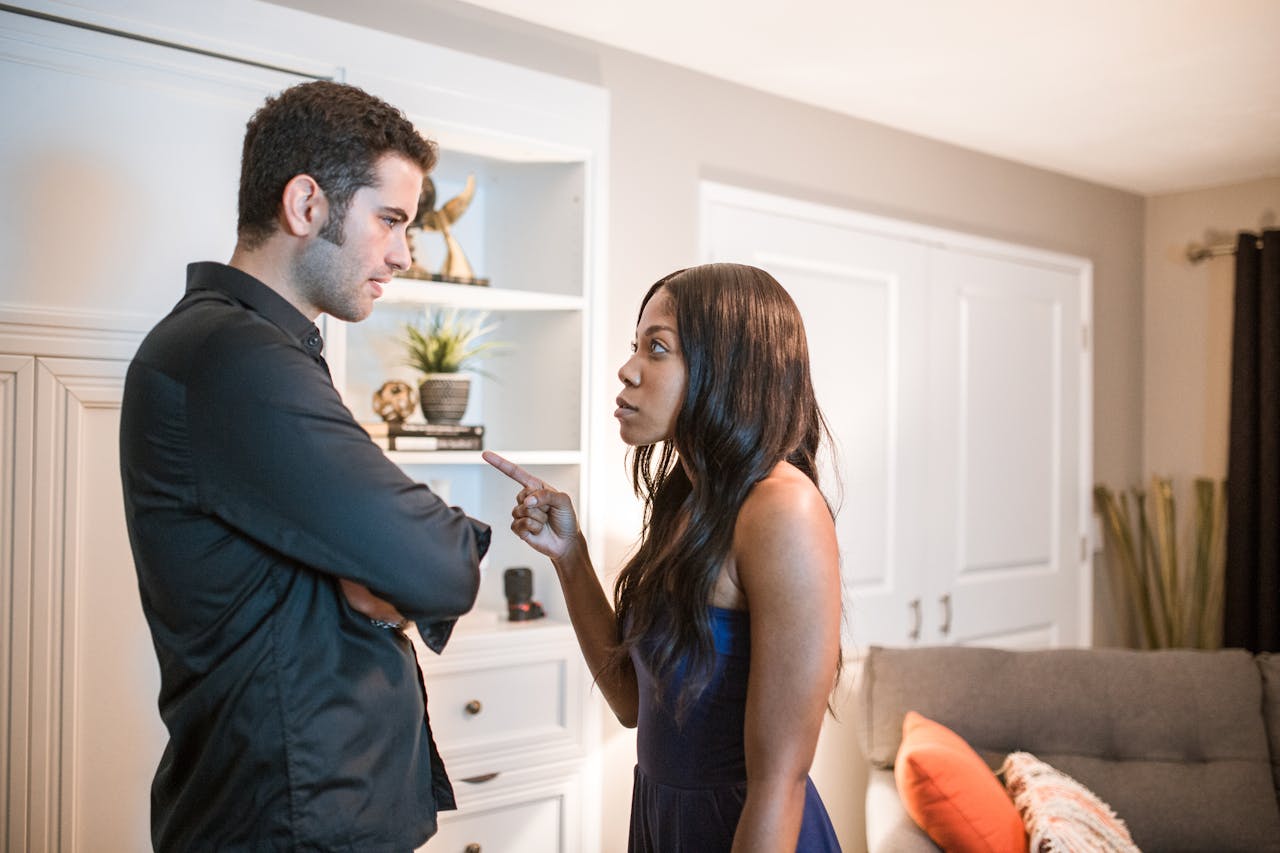12 Disrespectful Relationship Habits That Are Never Okay

In any relationship, mutual respect is the foundation of trust, communication, and emotional well-being. However, some habits can undermine that respect and harm the relationship. These disrespectful behaviors, whether intentional or not, can create a toxic environment that leads to emotional distance, resentment, and even breakups. In this blog, we’ll discuss 12 disrespectful relationship habits that are never okay, no matter the circumstances. Recognizing and addressing these habits is crucial for fostering a healthy, loving partnership.
1. Constant Criticism

Criticism that targets your partner’s character or behavior rather than offering constructive feedback can be incredibly damaging. Constantly pointing out flaws or nitpicking every little thing creates an atmosphere of insecurity and resentment. Instead of focusing on what’s wrong, try to address issues in a way that encourages growth and understanding, not degradation. Constructive criticism is meant to help, not hurt. Constant criticism, when done repeatedly, can make the recipient feel undervalued and unappreciated, which is never conducive to a healthy relationship. It’s important to approach your partner with kindness and patience rather than criticism, as this builds trust and a deeper emotional connection.
2. Lack of Communication

Effective communication is essential in any relationship. When one partner consistently shuts down, avoids conversations, or refuses to engage in important discussions, it creates a disconnect. This habit can lead to misunderstandings, unresolved issues, and feelings of neglect. Healthy relationships thrive on open, honest communication, and avoiding it only leads to more problems in the long run. When communication breaks down, it’s easy for partners to feel neglected or confused about each other’s needs, desires, and feelings. Therefore, it’s vital to make time for meaningful conversations, even when the topics are difficult or uncomfortable.
3. Ignoring Boundaries

Everyone has personal boundaries that need to be respected. Whether it’s emotional, physical, or psychological, crossing these boundaries can create feelings of discomfort and disrespect. Ignoring your partner’s boundaries, whether they’re related to personal space, time, or emotional needs, is a sign of disrespect. Respecting boundaries shows that you value your partner’s feelings and autonomy. It’s essential to communicate your own boundaries clearly and listen when your partner expresses theirs. When both partners respect each other’s limits, it fosters a sense of safety and trust within the relationship.
4. Gaslighting

Gaslighting is a form of emotional manipulation where one partner makes the other question their reality or perception of events. It’s a dangerous tactic that undermines the victim’s confidence and sense of self. If your partner consistently denies your feelings, memories, or experiences, or makes you feel like you’re overreacting when you’re not, it’s a clear sign of gaslighting. This behavior is never acceptable in any relationship. Gaslighting can have severe long-term emotional consequences, making the victim feel confused, isolated, and unsure of themselves. Recognizing this pattern early on is important to protect yourself from emotional harm and to address it with your partner.
5. Disrespecting Their Time

Time is one of the most valuable things we have, and respecting each other’s time is a crucial part of a healthy relationship. Constantly being late, canceling plans last minute, or not making time for your partner sends the message that you don’t value their time or presence. Respecting each other’s time shows that you care about the relationship and are committed to it. When your partner feels like their time is being disrespected, it can create feelings of frustration and resentment. Making an effort to be punctual and prioritize each other’s schedules demonstrates thoughtfulness and consideration.
6. Playing Mind Games

Mind games are manipulative behaviors designed to confuse, control, or frustrate your partner. These behaviors often involve creating unnecessary drama, pretending to be unavailable, or acting in ways that make your partner feel insecure or uncertain. Playing mind games in a relationship is a clear sign of disrespect and an unhealthy attempt to gain power or control. Instead of playing games, it’s crucial to address issues directly and with honesty. Mind games may provide temporary satisfaction, but they ultimately damage the trust and emotional intimacy that relationships rely on.
7. Not Taking Responsibility for Mistakes

Everyone makes mistakes, but the key to maintaining a respectful relationship is owning up to them. When one partner refuses to take responsibility for their actions, it shows a lack of maturity and respect. Avoiding accountability or shifting the blame onto the other person can lead to feelings of frustration and resentment. Taking responsibility for your actions shows that you respect your partner and are committed to improving the relationship. Acknowledging your mistakes and apologizing sincerely demonstrates emotional maturity and strengthens the bond between partners.
8. Being Dismissive of Their Emotions

Dismissing your partner’s emotions or belittling their feelings is one of the most disrespectful habits in a relationship. If your partner expresses their feelings, it’s important to listen and validate them, even if you don’t fully understand or agree. Dismissing emotions can lead to emotional withdrawal and feelings of isolation. A respectful partner will always listen and try to empathize with their significant other’s feelings. It’s essential to create an environment where both partners feel safe to express themselves without fear of judgment or invalidation. Emotional support is a cornerstone of any healthy relationship.
9. Lack of Support

Support is essential in any relationship. Whether it’s emotional, mental, or physical support, showing up for your partner when they need you is crucial. A lack of support can make your partner feel alone and unimportant. Whether they’re going through a tough time or pursuing a personal goal, offering encouragement and showing interest in their well-being is essential to maintaining a respectful relationship. When one partner consistently fails to provide support, it can create feelings of neglect and resentment. By being there for each other during challenging times, you build trust and strengthen your emotional connection.
10. Constant Comparisons

Constantly comparing your partner to others, whether it’s ex-partners, friends, or even celebrities, can damage self-esteem and create feelings of inadequacy. It sends the message that your partner is not good enough as they are, and that someone else is always better. In a healthy relationship, each person should feel valued for who they are, without the need for comparisons to others. Comparisons can create unnecessary tension and insecurity, which can lead to emotional distance. Instead of comparing, focus on appreciating and celebrating the unique qualities that make your partner special.
11. Taking Them for Granted

In long-term relationships, it’s easy to fall into the habit of taking each other for granted. When one partner stops showing appreciation or gratitude for the other, it can lead to feelings of being undervalued. Regularly expressing gratitude, whether through words or actions, helps maintain a sense of respect and admiration. Never assume your partner knows you appreciate them—show it often. Taking your partner for granted can create an imbalance in the relationship, where one person feels overburdened or unappreciated. Simple gestures of appreciation can go a long way in maintaining a healthy and respectful relationship.
12. Disrespecting Their Privacy

Everyone deserves privacy, even in a close relationship. Constantly snooping through your partner’s phone, email, or personal belongings is an invasion of their privacy and a sign of distrust. Trust is a cornerstone of any relationship, and violating your partner’s privacy can lead to feelings of betrayal and resentment. If you’re struggling with trust issues, it’s important to address them openly and honestly rather than resorting to invasive behavior. Respecting each other’s privacy allows both partners to maintain a sense of individuality and trust, which is essential for a healthy, long-lasting relationship.
Final Thoughts

Disrespectful habits can quickly erode the trust and emotional connection in a relationship. Whether it’s through constant criticism, lack of communication, or dismissing your partner’s feelings, these behaviors can have a long-lasting negative impact. Recognizing and addressing these issues is the first step toward creating a healthier, more respectful relationship. Mutual respect, trust, and communication are key to building a strong and lasting partnership. By avoiding these 12 disrespectful habits, you can foster a relationship based on love, understanding, and care.
If you find yourself or your partner engaging in any of these behaviors, it’s important to have an open conversation about how to improve the relationship. Respecting each other’s boundaries, emotions, and needs will help create a more fulfilling and positive connection for both partners.
Leave a Reply